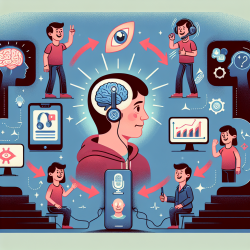As speech-language pathologists, our mission extends beyond speech and language development to encompass the holistic well-being of the children we serve. A recent qualitative study titled Primary care and youth mental health in Ireland: qualitative study in deprived urban areas provides valuable insights into the identification, treatment, and ongoing engagement of youth with mental health and substance use disorders. This research can guide us in improving our practices and outcomes for children, particularly in school settings.
Key Findings and Their Implications
The study identified three major themes that are critical to addressing youth mental health: Identification, Treatment, and Ongoing Engagement. Below, we discuss each theme and its implications for practice in school settings.
1. Identification
Healthcare professionals reported several barriers to identifying mental health and substance use disorders, including:
- Prioritization of crisis cases over early intervention
- Confidentiality and consent issues
- Concerns around formally diagnosing a young person
To overcome these barriers, the study suggests the following enablers:
- Outreach work
- Activity-based engagement
- Promoting mental health and drug awareness
- Specific training and use of formal assessment tools
In school settings, we can implement these strategies by integrating mental health awareness programs into the curriculum, using validated screening tools, and fostering a supportive environment where students feel safe to discuss their mental health concerns.
2. Treatment
Barriers to effective treatment identified in the study include limited funding and the tension between crisis intervention and early intervention. To enhance treatment, the study recommends:
- Inter-agency collaboration
- Training for primary healthcare professionals, especially GPs
In our practice, collaborating with other school-based professionals such as counselors, psychologists, and social workers can ensure a more comprehensive approach to treatment. Additionally, advocating for and participating in ongoing professional development can enhance our skills in addressing youth mental health.
3. Ongoing Engagement
The study highlights barriers to ongoing engagement, including external pressure on young people to attend services and their reluctance to engage in counseling. Enablers to ongoing engagement include:
- Intrinsic motivation of the young person
- Continued opportunities for engagement
- Personal achievement goals
To maintain engagement, it is crucial to build strong, trusting relationships with students and provide them with continuous support. Setting achievable goals and celebrating their successes can also motivate students to stay engaged in their treatment.
Encouraging Further Research
The study concludes that further research is needed to develop and evaluate complex interventions that promote early intervention in deprived areas. As practitioners, we can contribute to this body of knowledge by documenting our experiences, sharing best practices, and participating in research initiatives.
To read the original research paper, please follow this link: Primary care and youth mental health in Ireland: qualitative study in deprived urban areas.










